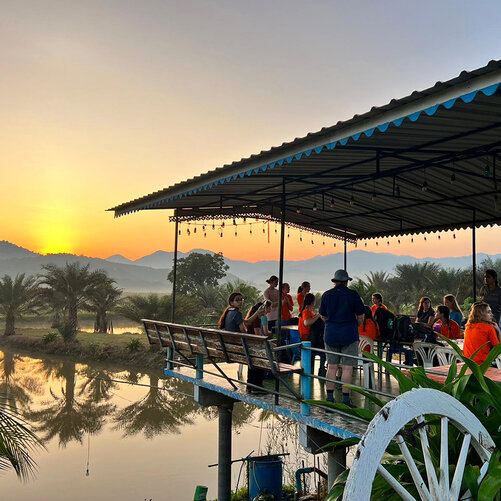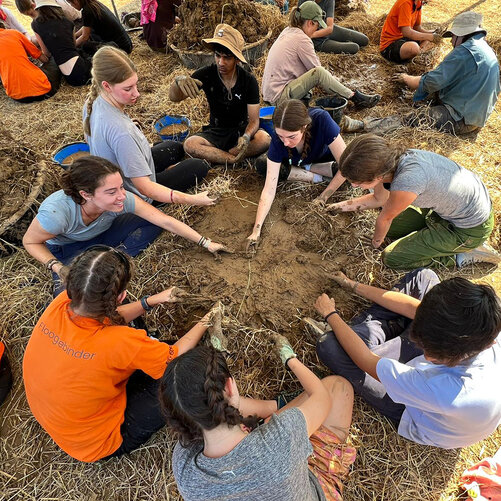The project was divided into two parts: the "Big Build" project and the "Environmental" project. Both groups lived together and worked on different focal points during the day in the humid Thai heat. For the Big Build project, an expert in sustainable construction from Thailand was present as a supervisor and instructed the group in clay straw construction with the aim of building a village community center in a village in the municipality of Kui Buri. The "Environmental" project dealt with the co-existence of elephants and the village communities and, in collaboration with a doctoral student, investigated the demography and behavior of the highly social animals. The cultivation of bananas, pineapples, mangoes etc. attracts elephants from the neighboring Kui Buri National Park and leads to dangerous conflicts and high crop and income losses for the already poor population. Cultivation management and various protection methods that can be derived from the behavioral studies, as well as education among the population and the integration of ecotourism help to establish peaceful coexistence. Nesting opportunities for hornbills, which have run out of breeding sites in old tree populations in a landscape that has been heavily altered by humans, have also been created using mud-straw construction methods.
In addition to the content-related and practical aspects, the project includes constant reflection on the learning objectives and our IDEALS in evening workshop sessions. Active risk assessment, reflecting on communication with each other, exchanging problem-solving strategies, teamwork and learning how to deal with challenges give the young people the opportunity to fill and expand their toolbox with methods for acting in a global network. For two and a half weeks, the students from 22 schools around the world - without the pressure of social media - are part of a group with a wide variety of backgrounds and experiences. A unique and formative experience that opens up a new world of personal development for many students. The days were exhausting for everyone - the day started at 6:00 am and didn't end until around 10:00 pm. In the evening, I discussed the following day's workshop with my international team of colleagues and exchanged methods and experiences - we also grew in our role as learning guides and not only brought home mature students, but also inspiration for our schools. The next service project will take place in July - I am very much looking forward to being able to send Salem students on this unique journey of experience and hope for successful applicants from our school.





